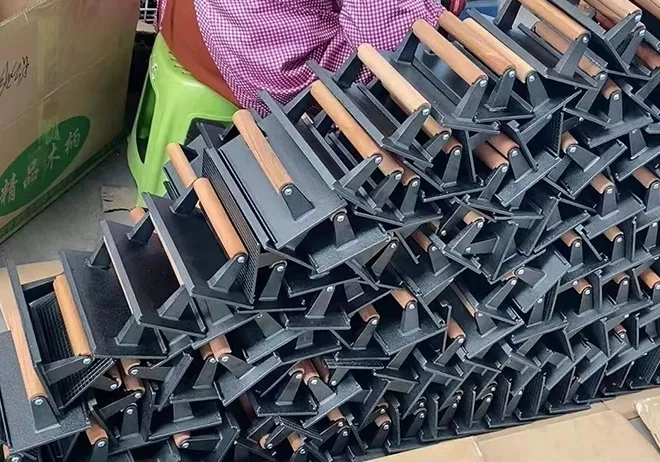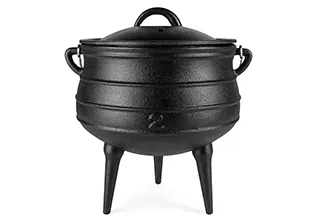
2 月 . 14, 2025 06:56
Back to list
dutch oven quality
For those seeking reliable cookware, the dutch oven stands unparalleled in terms of its versatility and robustness. As someone who has spent years both using and researching cookware, the essential qualities that make a dutch oven a worthwhile investment are durability, performance, and material construction.
From an expertise standpoint, maintaining a dutch oven is simple, yet crucial for prolonging its life and maximizing performance. Avoid metal utensils that can damage the enamel coating, instead opt for wooden or silicone options. Though dishwasher safe, hand washing is recommended to preserve the finish and prevent any potential fading of colored enamel over time. Regularly seasoning the interior helps maintain the non-stick capabilities inherent in quality enamel coatings, which further supports the longevity of the pot. Authoritativeness in cookware selection cannot be understated. Professional chefs and culinary enthusiasts continuously advocate for the dutch oven due to its reliable performance and adaptability in any cooking scenario. Trusted reviews and testimonials often highlight the seamless blend of tradition and innovation in these pots, cementing their position as indispensable kitchen tools. Trustworthiness, an essential factor for consumers, is often built through warranties and brand reputation. Investing in a dutch oven with a comprehensive warranty provides peace of mind, assuring buyers of both quality and company accountability. Choosing established brands with a long-standing history of excellence in cookware assures the acquisition of a dutch oven that promises years of satisfying culinary experiences. In sum, choosing a high-quality dutch oven is not merely about purchasing cookware; it’s about embracing a kitchen tradition that enhances expertise in cooking, establishes authority in culinary techniques, and, most importantly, builds trust through durable, reliable performance.


From an expertise standpoint, maintaining a dutch oven is simple, yet crucial for prolonging its life and maximizing performance. Avoid metal utensils that can damage the enamel coating, instead opt for wooden or silicone options. Though dishwasher safe, hand washing is recommended to preserve the finish and prevent any potential fading of colored enamel over time. Regularly seasoning the interior helps maintain the non-stick capabilities inherent in quality enamel coatings, which further supports the longevity of the pot. Authoritativeness in cookware selection cannot be understated. Professional chefs and culinary enthusiasts continuously advocate for the dutch oven due to its reliable performance and adaptability in any cooking scenario. Trusted reviews and testimonials often highlight the seamless blend of tradition and innovation in these pots, cementing their position as indispensable kitchen tools. Trustworthiness, an essential factor for consumers, is often built through warranties and brand reputation. Investing in a dutch oven with a comprehensive warranty provides peace of mind, assuring buyers of both quality and company accountability. Choosing established brands with a long-standing history of excellence in cookware assures the acquisition of a dutch oven that promises years of satisfying culinary experiences. In sum, choosing a high-quality dutch oven is not merely about purchasing cookware; it’s about embracing a kitchen tradition that enhances expertise in cooking, establishes authority in culinary techniques, and, most importantly, builds trust through durable, reliable performance.
Previous:
Next:
Latest news
-
Extra Large Round Cast Iron Griddle - Heavy Duty Griddle Plate for Even Heating & Versatile CookingNewsJun.10,2025
-
Top Brands of Cast Iron Cookware Durable & Versatile Cast Iron Skillet BrandsNewsJun.10,2025
-
Enamel Coated Cast Iron Pot Durable, Non-Stick & Even Heat CookingNewsMay.30,2025
-
2 Quart Dutch Oven Durable Cast Iron, Even Heating & VersatileNewsMay.30,2025
-
Best Chinese Wok Price Authentic Iron Pans, Fast Shipping & DealsNewsMay.29,2025
-
Non-Stick Cast Iron Skillet with Lid Durable & Easy-Clean PanNewsMay.29,2025


